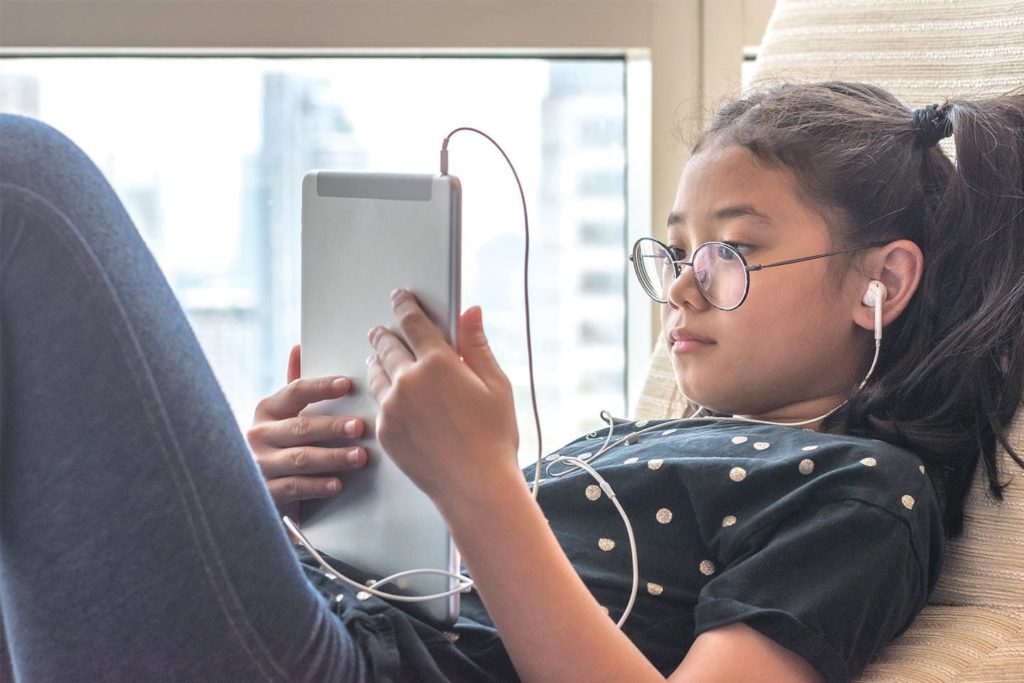Parenting in the Digital World
When it comes to parenting frustrations, technology is probably at or near the top of the list for those who want to raise healthy, well-adjusted children.
The American Academy of Pediatrics (AAP) discourages any amount of screen time for children under 2 years old. However, a study recently released by JAMA Pediatrics says screen time has more than doubled for children under the age of 2 since 1997. The AAP also recommends that children 10 and older have no more than two hours a day of screen time.
For kids of all ages, too much screen time has been proven to increase the risk of sleep trouble, attention issues, and anxiety and depression symptoms. Additionally, studies show that children eat more unhealthy food while watching screens, which can lead to weight gain.

Melanie Hempe, founder of Families Managing Media, believes there are at least four things parents should know about brain development to help with screen management: For starters, the prefrontal cortex (the reasoning center) is the last part of the brain to mature, and it is impossible to accelerate this maturity. Even the most intelligent child can have issues managing time or paying attention, so it’s important to set boundaries around screen time for them.
Second, your child’s brain development is influenced by their activities. Like dirt roads being paved, neuronal connections get stronger with use, and unused connections get pruned away at puberty. The longer a child is exposed to one type of experience, the harder it is to reverse that effect. That means, exposure to social media and screen time, which can cause less neuronal connectivity, can be damaging to brain development over the long term.
Third, screen time is not a neutral activity. Dopamine controls the brain’s reward and pleasure centers. Kids get an instant dopamine rush from likes on social media, victories in gaming, and so on. The “dopamine feedback loop” is then activated and a craving sets in. The bad news is that school and other “less exciting” things can’t compete with the novelty offered by excessive screen time.
Fourth, screens often replace activities that are foundational to healthy brain development such as handwriting practice, real play, or playing music. Movement, which helps kids maintain focus and deal with distractions, is also absent during screen time.
Consider this before you introduce more technology into your child’s world: Reading, the number one predictor of academic success, is the first activity to go when screens are present.
Here are more tips for managing media in your home:
- Occupy kids with a toy instead of using screens.
- Foster face-to-face social interactions. Children do not need six years of social media training – they need face-to-face interactions with friends to learn critical social skills.
- Allow more time for a child to mature by delaying access to addicting smartphones and video games. “No” for now doesn’t mean “no” forever.
- Create screen-free times and zones. The American Academy of Pediatrics actually says that doing nothing at all is better than staring at a screen.
- Monitor your child’s technology use. They need you to help them navigate issues of right and wrong and to help them set appropriate boundaries. You can learn a lot about your child (and others) by being watchful.


Julie Baumgardner, MS, CFLE
President and CEO, First Things First

